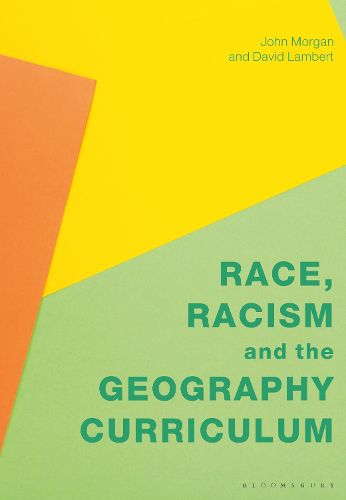Readings Newsletter
Become a Readings Member to make your shopping experience even easier.
Sign in or sign up for free!
You’re not far away from qualifying for FREE standard shipping within Australia
You’ve qualified for FREE standard shipping within Australia
The cart is loading…






Changes in the nature of knowledge
production, plus rapid social and cultural change, have meant that the
‘curriculum question’ - what is to be taught, and by extension, ‘whose knowledge’
- has been hotly contested. The question of what to teach has become more and more controversial. This book asks: what is an appropriate curriculum response
to the acute, renewed interest in issues of race and racism? How
does a school subject like geography respond?
The struggle over the school curriculum has
frequently been portrayed as being between educational ‘traditionalists’ and
‘progressives’. This book suggests a way out of this impasse. Drawing upon and extending insights from ‘social
realism’, it explores what a Future 3 geography curriculum might look like - one that
recognizes the importance of the academic discipline as a source of
curriculum-making but at the same time avoids geographical knowledge becoming set in stone. The book focuses very
sharply on issues of race and racism, enabling teachers to engage in
curriculum making in geography that is racially literate.
$9.00 standard shipping within Australia
FREE standard shipping within Australia for orders over $100.00
Express & International shipping calculated at checkout
Stock availability can be subject to change without notice. We recommend calling the shop or contacting our online team to check availability of low stock items. Please see our Shopping Online page for more details.
Changes in the nature of knowledge
production, plus rapid social and cultural change, have meant that the
‘curriculum question’ - what is to be taught, and by extension, ‘whose knowledge’
- has been hotly contested. The question of what to teach has become more and more controversial. This book asks: what is an appropriate curriculum response
to the acute, renewed interest in issues of race and racism? How
does a school subject like geography respond?
The struggle over the school curriculum has
frequently been portrayed as being between educational ‘traditionalists’ and
‘progressives’. This book suggests a way out of this impasse. Drawing upon and extending insights from ‘social
realism’, it explores what a Future 3 geography curriculum might look like - one that
recognizes the importance of the academic discipline as a source of
curriculum-making but at the same time avoids geographical knowledge becoming set in stone. The book focuses very
sharply on issues of race and racism, enabling teachers to engage in
curriculum making in geography that is racially literate.